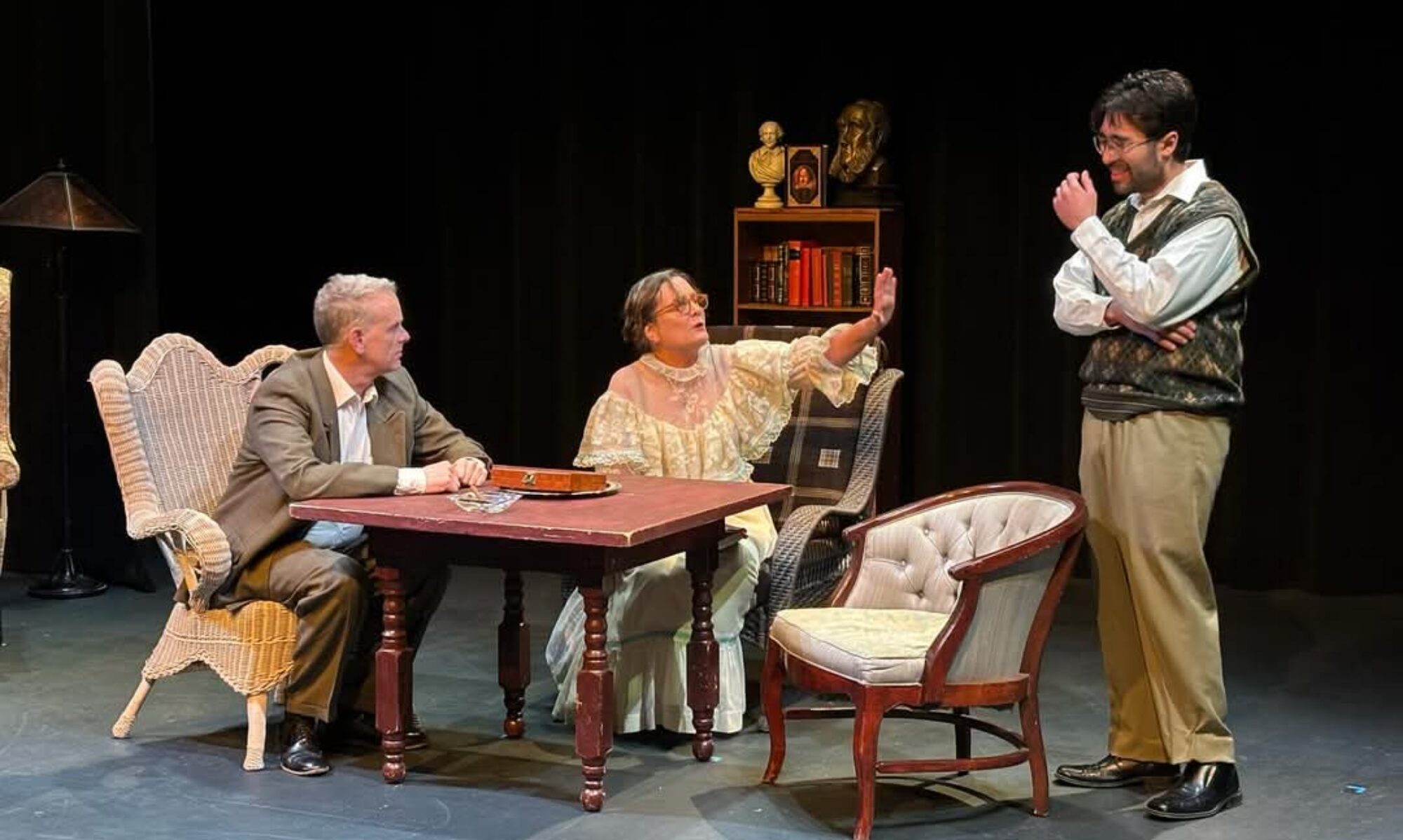by John Millington Synge
On the west coast of County Mayo[1] Christy Mahon stumbles into Flaherty’s tavern. There he claims that he is on the run because he killed his own father by driving a loy into his head. Flaherty praises Christy for his boldness, and Flaherty’s daughter (and the barmaid), Pegeen, falls in love with Christy, to the dismay of her betrothed, Shawn Keogh. Because of the novelty of Christy’s exploits and the skill with which he tells his own story, he becomes something of a town hero. Many other women also become attracted to him, including the Widow Quin, who tries unsuccessfully to seduce Christy at Shawn’s behest. Christy also impresses the village women by his victory in a donkey race, using the slowest beast.
Eventually Christy’s father, Mahon, who was only wounded, tracks him to the tavern. When the townsfolk realize that Christy’s father is alive, everyone, including Pegeen, shuns him as a liar and a coward. To regain Pegeen’s love and the respect of the town, Christy attacks his father a second time. This time it seems that Old Mahon really is dead, but instead of praising Christy, the townspeople, led by Pegeen, bind and prepare to hang him to avoid being implicated as accessories to his crime. Christy’s life is saved when his father, beaten and bloodied, crawls back onto the scene, having improbably survived his son’s second attack. As Christy and his father leave to wander the world, having reconciled, Shawn suggests he and Pegeen get married soon, but she spurns him. Pegeen laments betraying and losing Christy: “I’ve lost the only playboy of the western world.”
https://en.wikipedia.org/wiki/The_Playboy_of_the_Western_World




